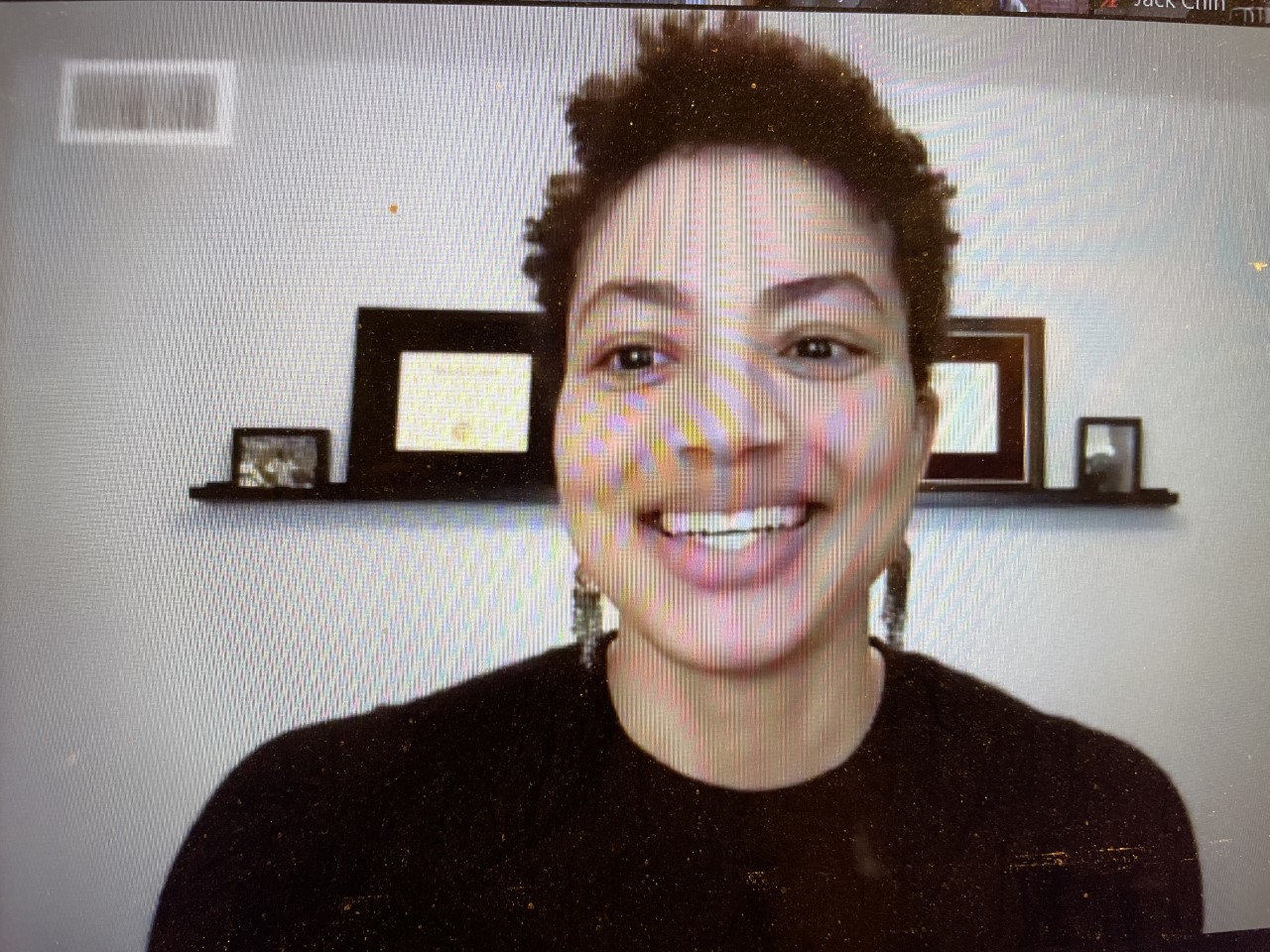Free People of Color series offers a look at land and kinship in western regions

Earlier this week, the Aoki Center on Race and Nation Studies co-sponsored an amazing event for faculty, students, staff, and community. The Free People of Color Seminar Series featured Professor Alaina Roberts, University of Pittsburgh, who originally is from Hayward, Calif., in the Bay Area.
The focus of the Aoki Center and the UC Davis History Department colloquium was Professor Roberts' paper "A Different Forty Acres: Land, Kin, and Migration in the Black and Native West."
In the paper, Professor Roberts argues that by using land and migration as categories of analyses, we see how some Black and mixed-race Chickasaw freedpeople (women and men formerly enslaved by Chickasaw Indians) exercised their freedom after the Civil War not by leaving their former spaces of enslavement, but by choosing to remain in these locations.
In laying claim to the land of the Five Tribes in Indian Territory (modern-day Oklahoma), people of African descent documented the ways they had come to identify with land and space through shared hardships and Black and Black Indian kinship connections. Thus, for these people, Reconstruction in the West centered more on the attainment of land and belonging than on the realization of formal citizenship rights.
Alaina E. Roberts is an Assistant Professor of History at the University of Pittsburgh. Her research focuses on the intersection of African American and Native American history from the 19th century to the modern day with particular attention to identity, settler colonialism, and anti-Blackness. Her first book will soon be published: I’ve Been Here All the While: Black Freedom on Native Land (University of Pennsylvania Press, April 2021).
Professor Roberts offered some interesting insights on mixed Black/native peoples, a group that has received relatively little scholarly attention. We were lucky to have her (virtually) at UC Davis School of Law.
The focus of the Aoki Center and the UC Davis History Department colloquium was Professor Roberts' paper "A Different Forty Acres: Land, Kin, and Migration in the Black and Native West."
In the paper, Professor Roberts argues that by using land and migration as categories of analyses, we see how some Black and mixed-race Chickasaw freedpeople (women and men formerly enslaved by Chickasaw Indians) exercised their freedom after the Civil War not by leaving their former spaces of enslavement, but by choosing to remain in these locations.
In laying claim to the land of the Five Tribes in Indian Territory (modern-day Oklahoma), people of African descent documented the ways they had come to identify with land and space through shared hardships and Black and Black Indian kinship connections. Thus, for these people, Reconstruction in the West centered more on the attainment of land and belonging than on the realization of formal citizenship rights.
Alaina E. Roberts is an Assistant Professor of History at the University of Pittsburgh. Her research focuses on the intersection of African American and Native American history from the 19th century to the modern day with particular attention to identity, settler colonialism, and anti-Blackness. Her first book will soon be published: I’ve Been Here All the While: Black Freedom on Native Land (University of Pennsylvania Press, April 2021).
Professor Roberts offered some interesting insights on mixed Black/native peoples, a group that has received relatively little scholarly attention. We were lucky to have her (virtually) at UC Davis School of Law.
